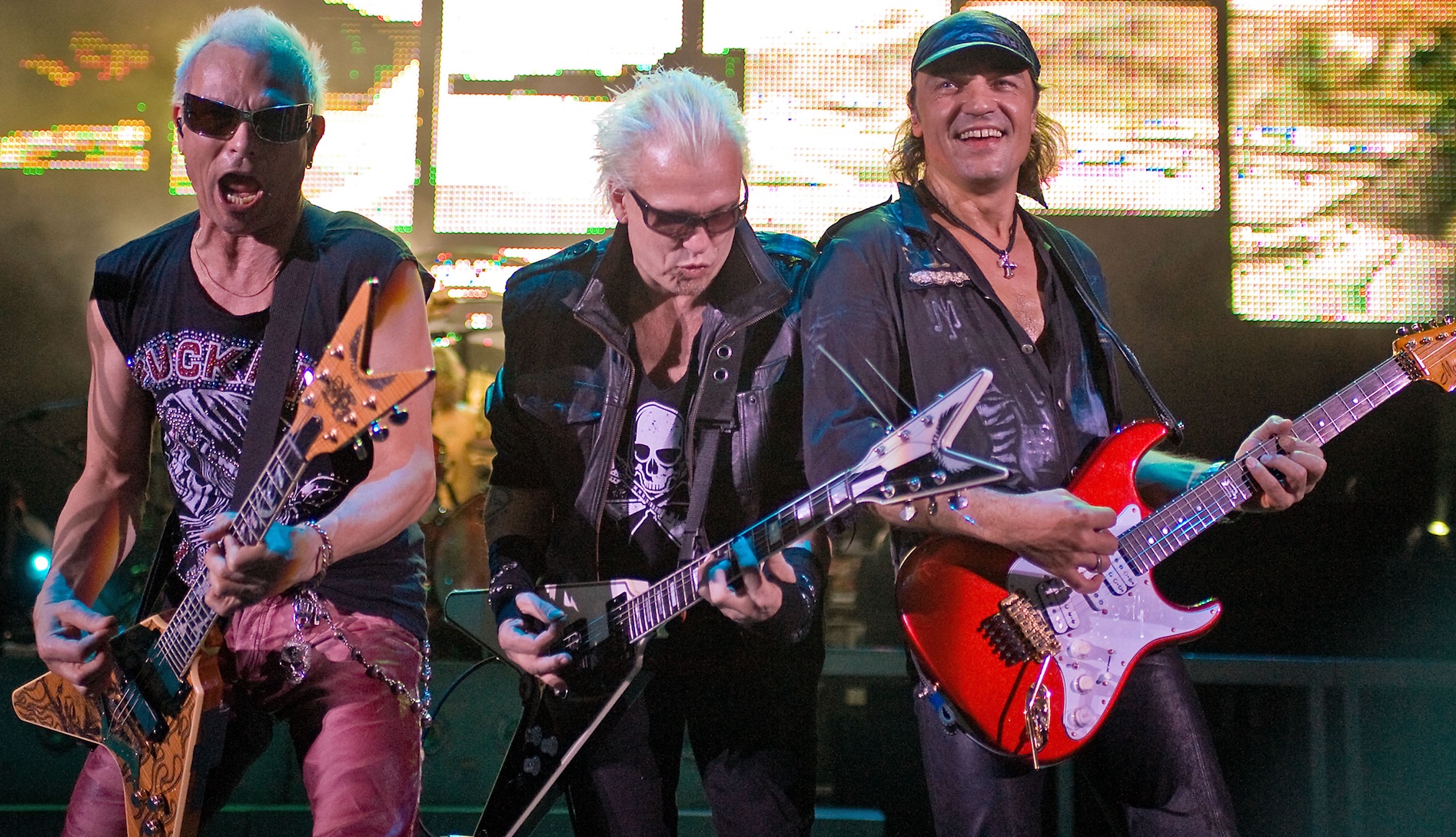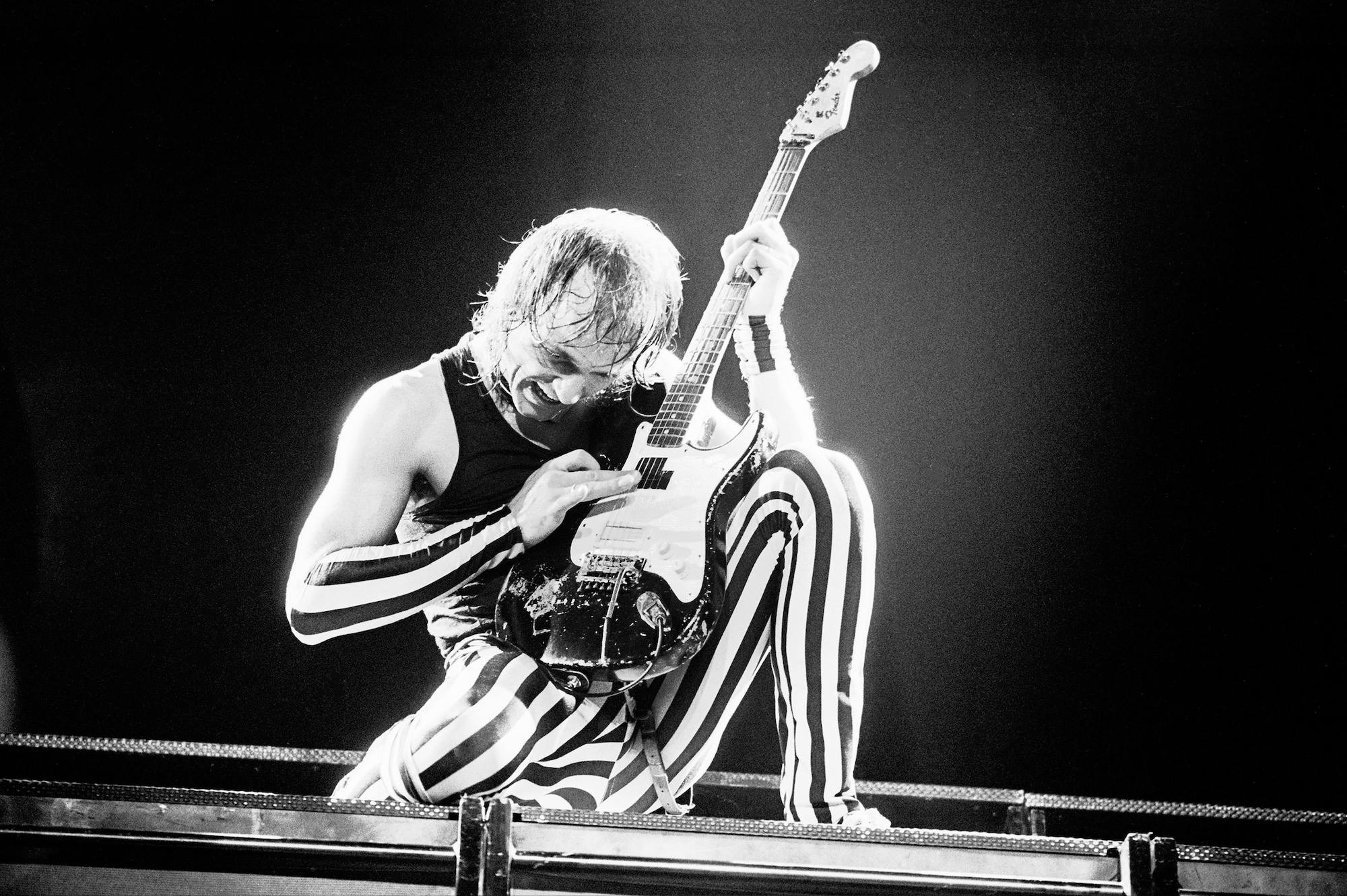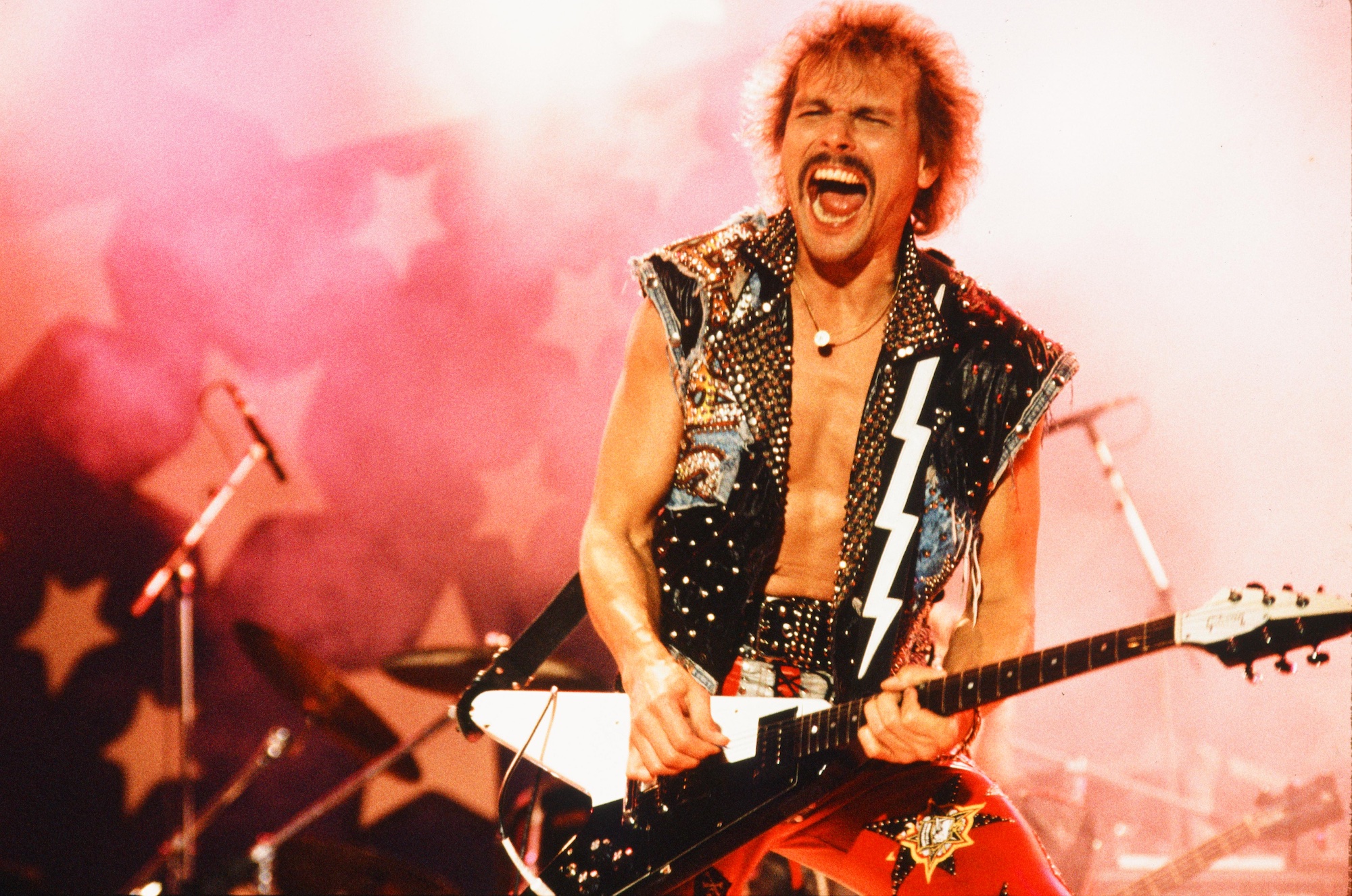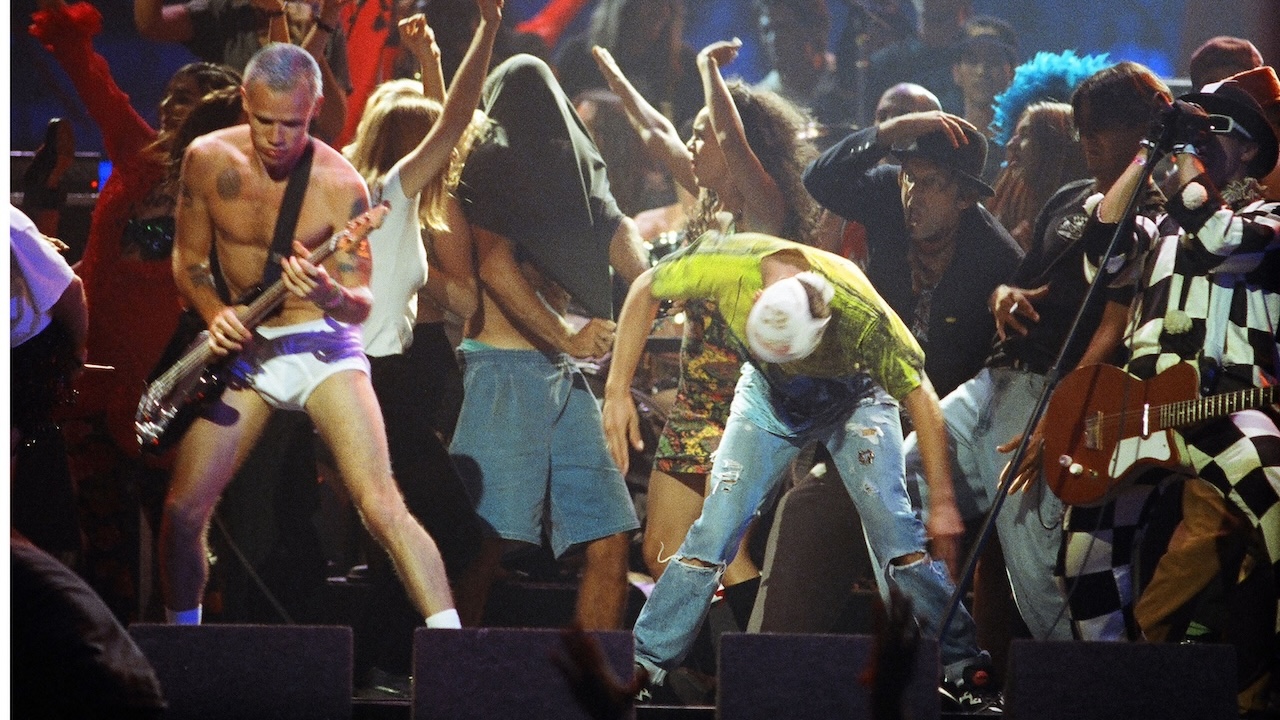“Those seeking pointers on how to tailor a solo to serve the song would do well to investigate their back catalog”: The Scorpions guitarists list boasts some of rock's most electrifying and underrated players – this is what you can learn from each of them
The German hard rock juggernaut's song-focused approach has required their guitarists to showcase their distinctive styles with a concise blend of taste and technique appropriate to the setting

All the latest guitar news, interviews, lessons, reviews, deals and more, direct to your inbox!
You are now subscribed
Your newsletter sign-up was successful
At the time of writing, the Scorpions are set to round off a triumphant year with Coming Home Live, recorded at their 60th anniversary show, in their hometown of Hanover, Germany, last July.
This in-concert set is their second double album of 2025, arriving hot on the heels of From The First Sting, a career-spanning compilation showcasing the Scorpions’ unique ability to infuse radio-friendly hard rockers and cheese-free ballads with a standard of lead guitar work that's inspired countless aspiring six-stringers, and dazzled concert audiences.
In 2015, founding guitarist Rudolf Schenker told this writer of his original vision for the band; “When I started the Scorpions, it was very naive, thinking, four or five friends traveling around the world to play music. This philosophy of looking for good musicians, but also people I can build a friendship with, is why we're still standing. [Don’t] push the ego, push the vision.”
Schenker's team-centered vision has seen him devote himself to driving the Scorpions with a propulsive rhythm guitar attack, and to developing their crafted songwriting style, providing the perfect musical backdrop for lead guitarists Michael Schenker (1969-1973, 1978-1979), Uli Jon Roth (1973-1978), and Matthias Jabs (1979 to the present day) to shine.
Crucially, the Scorpions’ song-focused approach has required these players (along with Rudolf himself, on the rare occasions he plays a lead break) to showcase their distinctive styles with a concise blend of taste and technique appropriate to the setting.
Any rock guitarist seeking pointers on how to tailor a solo to serve the song would do well to investigate the Scorpions’ back catalog. With this in mind, let’s look at what each of the band’s six-string stingers has brought to the party through the years.
Michael Schenker – 1969-1973, 1978-1979
Michael's relationship with his elder sibling has been frosty of late. Nevertheless, many fans still associate him with his brother's band, as his two stints in the Scorpions resulted in albums that captured his playing at two pivotal stages.
All the latest guitar news, interviews, lessons, reviews, deals and more, direct to your inbox!
Today, Michael invariably tells interviewers that he doesn't listen to music, to avoid compromising in his pursuit of “pure self-expression”. However, the Scorpions' 1972 debut album, Lonesome Crow, provides an intriguing insight into Michael's early development, when formative influences like Tony Iommi were discernible in the repeated string bends and use of dorian scale phrases in I’m Going Mad, comparable to Iommi’s playing across Sabbath’s Paranoid album (see Hand of Doom).
During the ensuing tour, Michael famously jumped ship when the Scorpions supported UFO, with Rudolf's encouragement.
By the time he returned in 1978, Michael had become a revered guitar hero, reaching the peak of his powers just as the Scorpions were crystalizing their classic sound, after the departure of Uli Jon Roth. The explosive results were captured on Lovedrive (1979).
Sparks fly, as Michael’s ability to combine feel, melody, and blazing bursts of speed, is buoyed by Rudolf’s slashing rhythms on Another Piece of Meat, and chugging triplets on Lovedrive. And when the dark, atmospheric instrumental Coast to Coast kicks in, it’s game over. Michael turns in a career-high solo, with quicksilver runs and emotive bends, as Rudolf flips dynamically from open chords to a palm-muted crescendo.
Michael soon quit to form MSG, but subsequently played highlights from Lovedrive with the Scorpions on their 2008 tour, and with his Temple of Rock band, which featured former Scorps Francis Buchholz (bass) and Herman Rarebell (drums).
Uli Jon Roth – 1973-1978
In 1973, when an 18-year-old lead guitarist left an obscure German rock band and nominated his 19-year-old pal as his replacement, it wasn’t exactly headline news. Today, the fact that Michael Schenker tapped none other than Uli Jon Roth to fill the spot he’d just vacated in the Scorpions seems incredible, in view of the status they later achieved as two of the most influential guitar heroes of the last fifty years.
It's been heartening to see Roth's resurgence since the 1998 G3 tour (alongside Joe Satriani and Michael Schenker), but his four-album run with the Scorpions contains moments of brilliance upon which his reputation as a unique, innovative player was founded.
Though influenced by Jimi Hendrix in his use of wah pedal, wang bar dive bombs, and long, wailing bends, these elements never overshadowed Roth's identity, evident in his clean, precise technique, and dazzling speed on Speedy’s Coming, which opened his Scorps debut, 1974's Fly to the Rainbow.
Over the next three years, Roth’s progression as a soloist was remarkable, from the stately, harmonized trills of In Trance, through Catch Your Train’s head-spinning Mixolydian fills and lead break, and culminating in the breathtaking Sails of Charon, on which he pretty much invented neo-classical shredding way back in 1977. Seeking to pursue his own singular creative vision, Roth left the Scorpions amicably in 1978, returning to tour with them between 2006 and 2008.
Matthias Jabs – 1978-present

When 22-year-old Jabs joined the Scorpions in June 1978, the daunting prospect of filling the stack-heeled boots of his two predecessors was complicated when one of them returned.
After both Jabs and Michael Schenker played on Lovedrive, Jabs was let go, only to be swiftly reinstated just weeks into the tour. 46 years later, he's still there, having played a vital role as the band achieved success on a global scale with albums like Blackout, Love at First Sting, and Crazy World.
For this writer, Jabs has proven himself to be Rudolf Schenker’s most compatible guitar partner, and the Scorpions' perfect lead player, as his soloing style embodies the team spirit and song-focused approach that defines the band.
His scorching lead breaks are integral, memorable interludes in many of the Scorpions' best known songs, shot through with a dynamic grasp of phrasing that flows according to the mood of each track.
On mid-'80s mega-hit Rock You Like A Hurricane, Jabs deftly combines pick tapping slides and gut-level blues bends, and echoes of the vocal melody. For the mid-paced Bad Boys Running Wild, he builds tension with short, biting licks, before unleashing a ripping sequence of pull-offs across the neck. And on Coming Home, Jabs proves that shredding and feel need not be mutually exclusive.
What’s more, he’s kept his chops up, as recent tracks like Roots In My Boots [from 2022's Rock Believer] illustrate.
Rudolf Schenker – 1965-present

As stated above, Rudolf’s primary contributions have been as a songwriter, and in laying down an unshakeable rhythm guitar bedrock.
In the 1985 World Wide Live concert/documentary film, he explained. “I saw myself as a composer. My dream was to make good songs like the Beatles, the Kinks, and the Rolling Stones, not to be the fastest or best guitar player in the world.”
Accordingly, his rare lead breaks, on songs like Big City Nights, display a songwriter’s ear for a winning melody.
Back in 2015, Rudolf told this writer, “We wanted to show the world after the Second World War, ‘Here is a new generation from Germany. They’re not coming with tanks and guns, making war. They’re coming with guitars, bringing love, peace, and rock and roll.’”
Mission accomplished.
Rich Davenport is guitarist and vocalist with punk/ska punk/punky reggae merchants Vicious Bishop, and is a former member of Radio Stars, Atomkraft, and Martin Gordon’s Mammals. He swears by Orange amps and pedals, which is entirely appropriate for a ginger. In addition to making loud noises, he’s also written about loud noises for Classic Rock, Record Collector, Vive Le Rock, and Rock Candy. He’s interviewed such six-stringers as Ritchie Blackmore, Joe Bonamassa, Michael Schenker, Ty Tabor (Kings X), Peter Tork (The Monkees), Scott Gorham (Thin Lizzy), Pat McManus, Steve Hunter (Alice Cooper, Lou Reed), Ed King (Lynyrd Skynyrd), Vivian Campbell (Dio, Def Leppard), George Lynch (Dokken), Steve Lukather (Toto) and Lita Ford.
You must confirm your public display name before commenting
Please logout and then login again, you will then be prompted to enter your display name.




